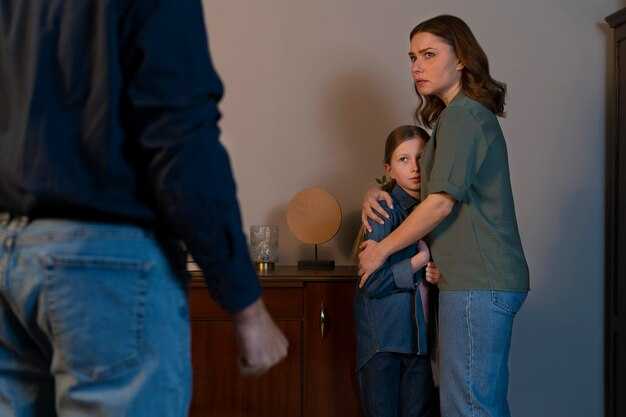In life you’ll encounter people who will mistreat you, and your instincts will warn you that their behavior is wrong and that you need to get away. Yet when your childhood included abuse or neglect, another force can overpower that inner knowing: the fear of leaving someone you’ve attached to. That fear can make you doubt the evidence of your own senses, convincing you to tolerate things you would have declared unacceptable only hours earlier. I’m not a therapist, but I’ve seen how powerfully we can deceive ourselves. Today’s letter comes from a woman I’ll call Janine. She writes: Dear Anna — I grew up with an alcoholic, depressed, abusive father who worked six days a week in construction, and a mother who ran an embroidery business out of our home. I have one sister. My dad was unpredictable — hot and cold, often angry and insulting. My mother felt like a saint when I was little because of how she handled his aggression, though now I see she was codependent and herself a victim of his abuse. She would tell us to just fall in line to avoid upsetting him. My mother also struggled with her weight, as I did growing up. She was tired, worked a lot to keep things afloat, and suffered severe knee pain for much of my childhood; my father made terrible comments about her weight, using that as an easy target. The same family dynamics persist now, but my dad directs his political attacks at me instead of my mother. I’m close with my mom. My sister is quiet and keeps to herself, though we do interact regularly. I’m 36 now and have been with a man eight years older than me for almost nine years. He has a son who is now 20. When we first met I was immediately attracted to him and easily pulled in — I craved attention and wanted out of my parents’ house, which I used as a landing spot, and I had also just left another bad relationship. At first his being a single dad seemed charming. I wasn’t sure if I wanted children, and he appeared to have his life together; for our first date he picked me up in a very new-looking Jeep. The next time, though, he arrived in an older car — the Jeep had been repossessed. I felt sorry for him and wanted to help. When things went wrong in his life, like family losses and difficulties with his son on weekends, I wanted to make things easier. We had a lot of fun together and he’s generally kind and loving toward me. He asked me to move in with him less than a year into dating, and because I was desperate to leave my parents’ home and liked him, I said yes. Once I moved in I discovered the dishes hadn’t been washed in probably a month and the house was a mess. I threw myself into making it cleaner and homier — nesting, decorating — and I took on a lot of the work. In hindsight I see how codependent I became. He had a similar hot-and-cold pattern with his son that mirrored the way my dad was with me: verbal and physical punishment he insisted was justified. His ex-wife wasn’t a great parent — there was drug and alcohol abuse — but I only observed that on weekends when he had custody, and I kept myself out of those conflicts. There were other things that bothered me and times I felt he wasn’t a good fit, but I suppressed those feelings and kept going. A year ago things escalated when I finally brought up marriage. He made an awkward, almost cringeworthy proposal: he handed me his deceased mother’s wedding band and told me, jokingly, to wear it at work so other men would stop hitting on me. It didn’t even fit. Early on I wasn’t fixated on marriage, but it bothered me that after so long he wouldn’t at least give a ring that represented us rather than his mother. It turned out he hadn’t filed his taxes since his divorce. We never combined finances — a decision I made initially because of his ex and his son; I didn’t want to be tied up until the son turned 18. At that point I told him to get his taxes sorted because I wouldn’t marry someone with messy tax issues. I have good credit and I work hard to maintain financial stability; over time I realized I’d fallen behind on my savings because I was covering more than my fair share out of love and hope for our future. On January 1st of this year — I don’t know why or how, maybe your videos helped — I finally found the courage to tell him I wanted to leave and that I was looking for a new place. He said he hadn’t understood that was an ultimatum and promised to fix things and make it right. He asked for one more year — he’d sort out his taxes, we’d be married — and I let him talk me into staying passive again. Now I’m stuck in my head. Do I give him another year to change? I don’t want to throw away almost nine years, but I also don’t want to waste more time. I think this relationship holds me back, and I hate that. I also feel I’ve been poor at communicating from the start — going along with everything only reinforced that things were acceptable. I’m finally taking responsibility for speaking up and caring for myself, but I need a push to leave. Your information has helped in many ways, but I keep struggling. Thank you. That’s Janine. What a hard situation. Here’s what I hear: you grew up with an alcoholic, depressed, abusive father and you’ve ended up with someone who mirrors a lot of that pain — maybe not exactly the same, but enough that the patterns are recognizably similar. The most alarming detail to me is that he was physically and verbally abusive toward his son and claimed that was a necessary way to control behavior. That alone is a huge red flag. The image of dishes sitting in the sink for a month even when there’s a new romantic partner coming over is another sign of neglect and poor respect. His failure to sort out finances and taxes over the years is also deeply concerning. The ring gesture isn’t criminal, but it’s revealing: giving you his mother’s band and saying to wear it so other men won’t hit on you is symbolic — it represents his family baggage more than a real commitment to you. The abuse toward his son suggests a real risk that he could be abusive to you as well, and that should not be minimized. You mentioned that when you told him about leaving he didn’t realize it was an ultimatum — I wonder if that conversation also made you regret not speaking up sooner. I hope you are asserting yourself now. I feel badly for his child; it’s painful when a partner tolerates or stands by while abuse happens and claims they can’t get involved. There’s also a worrying pattern where change only appears when you threaten to leave. If he only decides to “get it together” because you’re leaving, that’s not as reassuring as it sounds. Maybe he’ll have a genuine turnaround, maybe he won’t. This is the moment to be very clear about your boundaries: name the behaviors you find unacceptable and then follow through. Consider moving out now. You can leave the possibility open — tell him you’ll revisit things if he truly changes — but know that deeply rooted problems don’t resolve overnight. People don’t develop entrenched patterns quickly, and they don’t usually fix them completely in a year. It’s very possible you’ve lost sight of what you really want and been accommodating far too long, reshaping yourself to fit an intolerable situation. It sounds like you’ve grown since your younger years when the family alcoholism and abuse clouded who you were and what you wanted. Give yourself space to rediscover that. When partners are at very different places in their emotional growth, your progress can be experienced by them as betrayal or abandonment rather than inspiration. Maybe he needs to find out if real change is possible, and maybe that will lead to separation. You don’t have to decide everything immediately, but there’s a lot here that suggests staying as-is won’t lead to a happy life. There’s no legally binding commitment through marriage yet — and even marriage isn’t a guarantee of permanence. If you were a close friend telling me this, you’d have my support whichever way you move, but I also want to be blunt: these issues are not okay. Anyone with his level of problems can promise to change; the ones who actually do are rare and will show it steadily over time. Living apart for a while can be very clarifying when a relationship feels unstable. This could be a turning point for you, a chance to reflect, take stock, and begin healing from your past. Consider support groups for families of alcoholics — those programs can be very helpful — and cultivate women friends who are also on paths of recovery and self-improvement. Friends who have been through trauma can be imperfect, but they often understand the work you’re trying to do and can be incredibly supportive. Make your life rich and fun with friendships so that making healthy choices becomes easier — sometimes that means stopping participation in choices that no longer serve you. Many people who grew up with alcoholism struggle to spot red flags because they were taught as children that their perceptions were wrong and everything was fine. That can leave your red-flag detector broken. The good news is you can heal that — you can learn discernment again and recognize what’s a deal-breaker versus what’s a small, fixable issue. If you want a stronger red-flag radar, there’s a free download that outlines common early-warning signs in relationships so you can spot them sooner. You can use it to reflect on what you missed and to carry with you in the future as a reminder to stay awake to red flags instead of slipping into denial. If you’d like that resource, you can download it for free, and I’ll see you again soon.
Concrete next steps and resources

Below are practical, actionable steps you can take now to protect your safety, your finances, and your long-term wellbeing. You don’t have to do all of these at once — pick the ones that feel most urgent and realistic for you.
1) Safety first
– If you’ve seen physical abuse of the son or ever feared for your safety, document dates, photos, texts, and any witnesses. If there is immediate danger call local emergency services. If you are in the United States and need confidential help, the National Domestic Violence Hotline is 1-800-799-7233 or text START to 88788. If you are elsewhere, locate your country’s domestic violence helpline — most countries have hotlines and shelters. Keep a charged phone, an extra charger, and an emergency bag accessible with essential documents and cash.
2) Make a discreet exit & financial safety plan
– Start a separate savings account in your name only. Even small weekly deposits build options. Keep copies of important documents in a safe place (ID, passport, birth certificate, social security card, lease/mortgage papers, bank statements, tax records). Consider scanning and saving encrypted copies to an email or cloud account only you can access. Make a checklist for leaving: keys, medications, phone, extra clothes, copies of financial statements, and any legal paperwork. Tell a trusted friend or family member where you’d go if you need to leave quickly.
3) Boundaries that are specific and enforceable
– Write down the behaviors that are deal-breakers for you (e.g., physical discipline of the child, lying about taxes, repeated financial irresponsibility, refusal to seek help). Communicate one clear boundary: what you want changed, by when, and what you will do if it’s not met. Example script: “I need to see filed tax returns and evidence you’ve set up a payment plan within 90 days. If I don’t see that, I will move out and we’ll revisit our relationship later.” Short, measurable timelines and concrete deliverables reduce ambiguity.
4) How to assess “real” change
– Change is demonstrated by consistent, verifiable actions over months, not just promises. Signs of real work include: sustained attendance in therapy or a court-ordered program, documentation of completed tax filings and payment plans, participation in parenting classes, willingness to accept external accountability (therapist, sponsor, case worker), and a steady pattern of improved behavior without you repeatedly threatening to leave. If behavior shifts only appear when you threaten to leave, that’s a red flag for short-lived compliance.
5) Get professional and peer support
– Individual therapy with a trauma-informed clinician (look for terms like “trauma,” “attachment,” “EMDR,” or “Cognitive Behavioral Therapy”) can help repair the impact of childhood abuse and build decision-making skills. Groups like Al-Anon, Adult Children of Alcoholics (ACA), and local support groups can reduce isolation and improve insight. If you think the child is at risk, contact child protective services or a local child welfare agency to report concerns — you don’t need to be an expert to raise a flag when physical punishment or neglect is present.
6) Practical legal and financial steps
– If you share an address or bills, document any joint debts and consult a legal clinic or attorney about your rights. If finances are tangled or you’re worried about hidden liabilities, seek legal advice before making big moves. Consider placing a credit freeze or fraud alert if you worry he might misuse your identity or accounts. Keep records of any money you’ve lent or debts you’ve covered.
7) Small habits to regain agency
– Rebuild your sense of self and independence with small, regular practices: schedule weekly time with friends, pursue a hobby, set a small financial goal, and celebrate meeting it. These actions strengthen your ability to make decisions that honor your needs rather than old survival patterns.
8) If you decide to stay temporarily
– Make that a conscious, time-limited choice with clear terms (what change looks like, what proof you need, how often you’ll check in). Put milestones in writing and share them with a trusted friend or therapist who can hold you accountable. Reassess at the agreed checkpoints and be honest with yourself about whether the pattern has truly shifted.
9) When children are involved
– Protecting the child’s wellbeing is paramount. If you witness abuse, call local authorities or child protective services. Encourage caregiving that models non-violent conflict resolution; if the father refuses, document incidents and consider whether staying in the household places the child at continued risk.
10) Helpful resources
– Al-Anon / Alateen (support for families of alcoholics)
– Adult Children of Alcoholics (ACA) groups
– Local domestic violence shelters and hotlines
– Therapy directories (for example, PsychologyToday, local community mental health centers)
– Legal aid clinics for low-cost consultations
– Financial counseling and credit counselors
Final note: you deserve clarity, consistency, and respect. The history you carry shapes how you respond to instability and emotional manipulation, but it does not determine your future relationships. Whether you choose to leave now or to set a clear, time-limited test of change, do it from a place of information and support rather than obligation or fear. You already took a huge step by recognizing the pattern and speaking up about leaving — use that courage now to build a plan, involve trusted others, and protect your safety and emotional health. If you want, start by making one concrete move this week (open a separate account, schedule one therapy session, or prepare an exit bag) — small steps compound into freedom.


 Childhood Trauma and Self-Deception in Relationships">
Childhood Trauma and Self-Deception in Relationships">

 El perdón no salvará una Relación">
El perdón no salvará una Relación">
 Una Cultura de Apreciación es Esencial en tus Relaciones">
Una Cultura de Apreciación es Esencial en tus Relaciones">
 ¡Tu cuerpo te está advirtiendo! — La VERDADERA razón por la que estás tan abrumado">
¡Tu cuerpo te está advirtiendo! — La VERDADERA razón por la que estás tan abrumado">
 Cómo evitar que los padres narcisistas controlen tu vida">
Cómo evitar que los padres narcisistas controlen tu vida">

 ¿Cómo saber si tu matrimonio está destinado a fallar?">
¿Cómo saber si tu matrimonio está destinado a fallar?">
 When An Avoidant Acts Like THIS, They’re Truly Faithful For Real">
When An Avoidant Acts Like THIS, They’re Truly Faithful For Real">
 What to Do When You Feel Like Running Away">
What to Do When You Feel Like Running Away">
 12 Señales Súper Específicas de Que Tu Infancia Fue Extremadamente Dañina">
12 Señales Súper Específicas de Que Tu Infancia Fue Extremadamente Dañina">
 ¡Cómo comunicarse sin que se sientan atacados!">
¡Cómo comunicarse sin que se sientan atacados!">